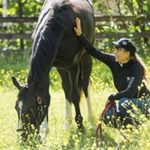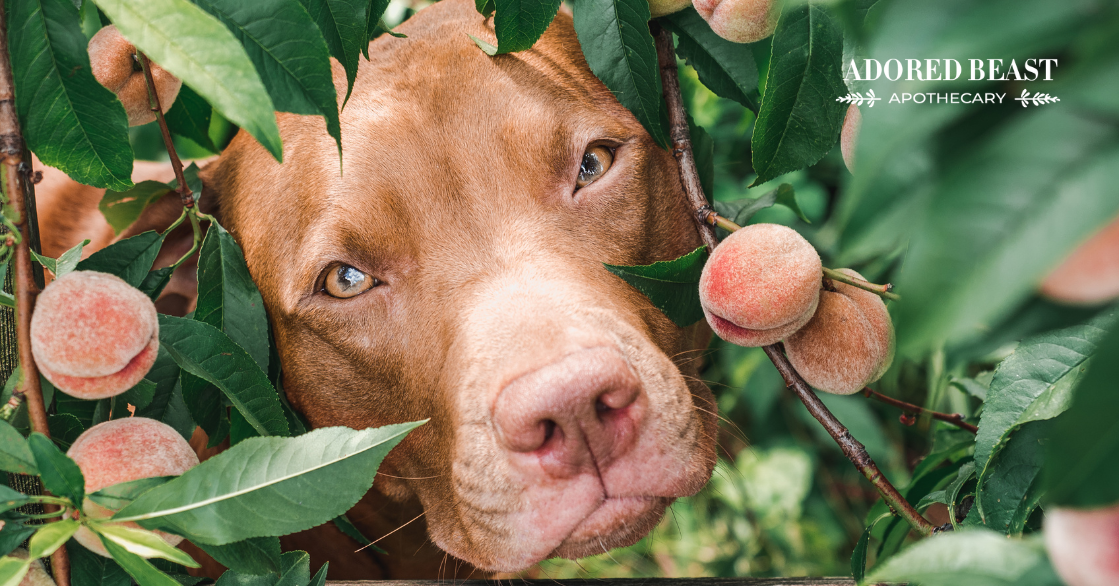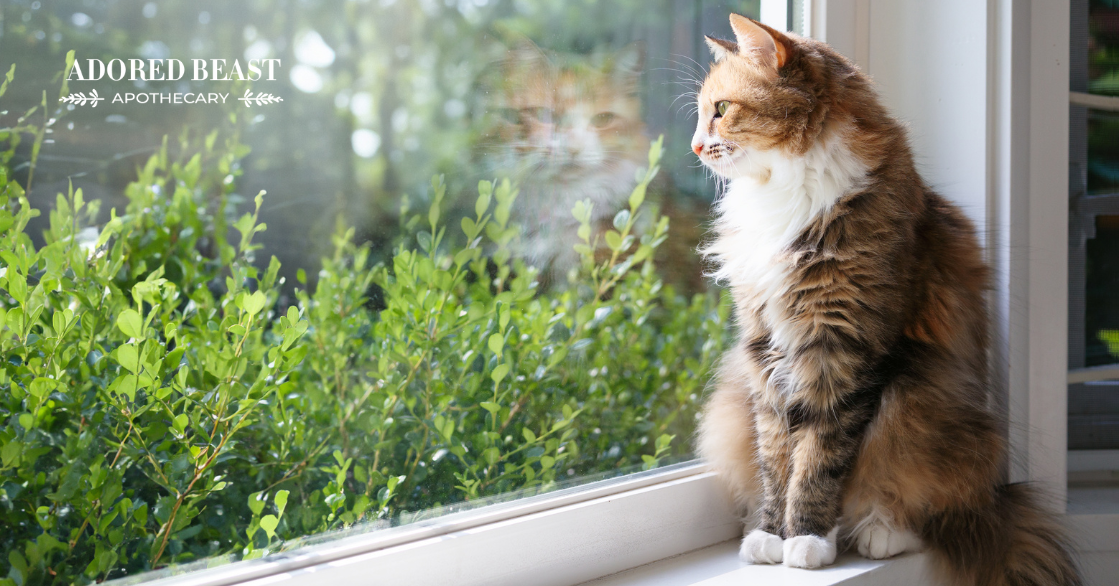Spring is here! We’re watching the snow melt, the rain fall, and hopefully will soon see the buds popping up out of the ground on on those bare branches all around us.
Spring is a wonderful time of year. It’s refreshing and the perfect time to renew.
However, if we’re not paying attention, or providing the best seasonal support for horses, the changing seasons can hurt! With this in mind, I want to run through some of the most important considerations when it comes to giving your horse the correct assistance. Make this time of year as refreshing and renewing for your horse as it is for you!
Why Seasonal Support for Horses is Important
There are so many things that start to happen for our horses in the spring (a lot of which can be blamed on the light/time change).
Studies have shown hat the light and the darkness, especially in our northern hemisphere, drastically effect a whole bunch of things in our horses.
With horses, because they spend the majority of their time outside, they’re dealing with natural light all the time. They’re very finely tuned to that light and dark cycle. As soon as there’s even a hint of the light changing, we start to see all kinds of things:
- Coat shedding – a new coat growing in
- Increased hoof growth
- Behavioural/hormonal changes – heat cycles at this time, for example. We’ve all seen a grump mare in the spring!
- Allergies can become more prevalent – skin and respiratory issues become more common in the spring
- Changes in foraging patterns. For example, where I am out in British Columbia, where we have a lot of rain in the spring. We don’t usually turn our horses out in these seasons because it can be dangerous for them. We shift them around as the seasons change.
All of these things can lead to stress – a good type of stress in my opinion – but stress none the less. There are so many changes taking place that our horses have to biologically deal with.
How the Circadian Rhythm Affects Our Horses
The circadian rhythm is the biological clock that all mammals have. It’s a 24-hour cycle that’s affected by light and darkness. It helps the body “know” what it needs to do at what times of day.
It naturally changes with the seasons. As we get that gradual increase in daylight, many things get that stimulation to start growing, and hormones start raging.
This time of year, the body is starting to wake up more, to get more active. For seamless transitions into the new season, you really want to offer support.
Here are a few areas in our horses that are affected by the change to the circadian rhythm:
- Hormonal pathways – melatonin, dopamine and cortisol (can affect the health status of Cushing’s horses and ponies)
- Allergies/histamine regulation – the circadian clock is an allergy/histamine regulator
- GI function – affects intestinal biogeography, metabolite regulation
- Liver function – gene transcription, especially in the liver
- Musculoskeletal system – affections regulation of locomotor activity and skeletal muscle gene expression
- Hoof and hair – stimulates the growth of both
So, as the seasons change, all of these systems need to be supported.
- Endocrine System – esp. insulin – sugar-intake
- Reproductive System
- Musculoskeletal System
- Immune System
- GI System
- Portal System (liver, kidney, pancreas, etc.)
- Skin/Haircoat & Hooves
Yes, pretty much the whole body…
Herbs for Seasonal Support for Horses
There are many different herbs that you can use to offer for seasonal support for horses. These are all safe to use and really important for this time of the year:
- Dandelion Root – One of the most nutritious herbs on the planet for horses! It supports bile secretion, digestion, liver/kidney function and inflammatory modulation
- Milk Thistle – Stabilizes liver cell membranes, supports liver function/detoxification
- Greater Celandine – Supports the portal system: the kidneys, pancreas, liver, intestines, and the lungs
- Barberry – Inhibits the growth of pathogenic bacteria in the gut, supporting the GI lining (helps ulcers/gastritis)
- Vitex (also known as chaste berry) – Hormonal normalizer for mares in season and mares that have been recently weaned from their foals
- Licorice – (Deglycyrrhizinated is best – DGL) – supports intestinal mucosa, improved intestinal circulation, better turnover/repair of the intestinal cells
- Marshmallow Root – Supports the skin, respiratory, digestive, and urinary systems
- Slippery Elm – Provides intestinal, uterine, respiratory and urinary linings – protects against ulcers, colitis, diverticulitis, and acidity
- Raspberry Leaf – Specifically useful for mares – reduces uterine inflammation, also supports healthy skin and haircoat. Also a nutrient-packed herb for both males and females
With herbs in general, I like to rotate. Don’t use them all the time. In my experience, they tend to lose their efficacy if you use them every day all year long. I always like to rotate them in at different times of the year. I do these ones for 2-3 months during this seasonal shift, and then I turn to other ones as we get into the summer.
Important Nutritional Support
Healing foods and nutraceuticals are also important. Obviously really good forage is number 1 – and I’ll talk about that in a minute, but these are also really valuable.
- Omega 3 Fats – These are really important, and many horses are lacking in them. As they get older they become even more beneficial. Omega 3s support digestion, hormonal shifts, immune modulation (inflammation), skin, eyes, haircoat, hooves, and joints. For horses I like plant-based versions (NO FISH OIL): flax seed, flax oil, flax meal, camelina
- Probiotics – A must, especially for horses that are not getting a lot of pasture turn-out, aren’t eating dirt, etc. Find a variety of strains, preferably with an equine-specific strain, as well as a high quality prebiotic. I use probiotics all year round with my horses, but you can fit them in whenever they’re most seasonally appropriate
- N-Acetyl Glucosamine (NAG) – Supports the interstitial linings of the body. Has an affinity for the uterine lining, the gut lining, bladder, and the lungs as well. Good for horses with COPD, leaky gut, discomfort during heat cycles, etc. I recommend a plant-based source
Additional Tips for the Spring
There are other puzzle pieces that fit in as well.
You always want to make sure that your horses are getting adequate minerals in their diets. A lot of horses are mineral deficient. If you’re not sure, have a mineral/vitamin analysis done and hay analysis too (Here’s what to look for). Good sources include humic and fulvic acid, sea kelp, free-choice natural salts, make sure they are getting enough calcium, magnesium, zinc and selenium
Do a stress assessment to see if there are any areas where you can help your horse feel less stressed. This could be that they’re not getting enough movement, or housed next to horse that stresses them out, or many other things. If you can pinpoint these things and change them, that can help to reduce cortisol which is a negative feedback loop into the whole hormonal system.
Eliminate glyphosate (AKA Round Up) – many people don’t even know that they’re feeding glyphosate. It’s in so many different feeds out there. Unless it’s certified organic, it most likely contains ingredients that were sprayed with glyphosate. The most highly sprayed is beet pulp, and then corn, wheat, soy. Eliminate it from the diet completely. It’s one of the worst hormone disruptors and is a patented antibiotic. If they’re eating it every day it’s really detrimental to gut health, and thus overall health.
Sugar and starch should also be eliminated or fed only in minuscule amounts (both are naturally found in hay) with lots of fiber. These can also disrupt the hormone insulin. And we probably all know a horse that is insulin resistant!
Employing homeopathy is another great way to help your horses. It’s super gentle and super effective, and you can use it even if your horse is on other medications. You can use it with everything else listed above. If you’re not quite sure what your horse might need, speak with a homeopath.
For barn management, if you use lights – ensure that they are blue and red lights specifically designed for circadian cycle balance (don’t just use fluorescent lights which are blue/will upset the circadian cycle).
When it comes to grazing, start slow and steady with hand grazing if your horse has been off grass for the winter. Transition slowly onto well managed pasture.
Providing the proper seasonal support for horses in the spring (really all year long) is essential for maintaining overall health and wellness. Consider how the changing seasons affect your horse and cater your support regimen to reflect it. Taking the extra time to customize a supportive care plan can go a long way to minimizing the impacts. Here’s to good health for your horse!












